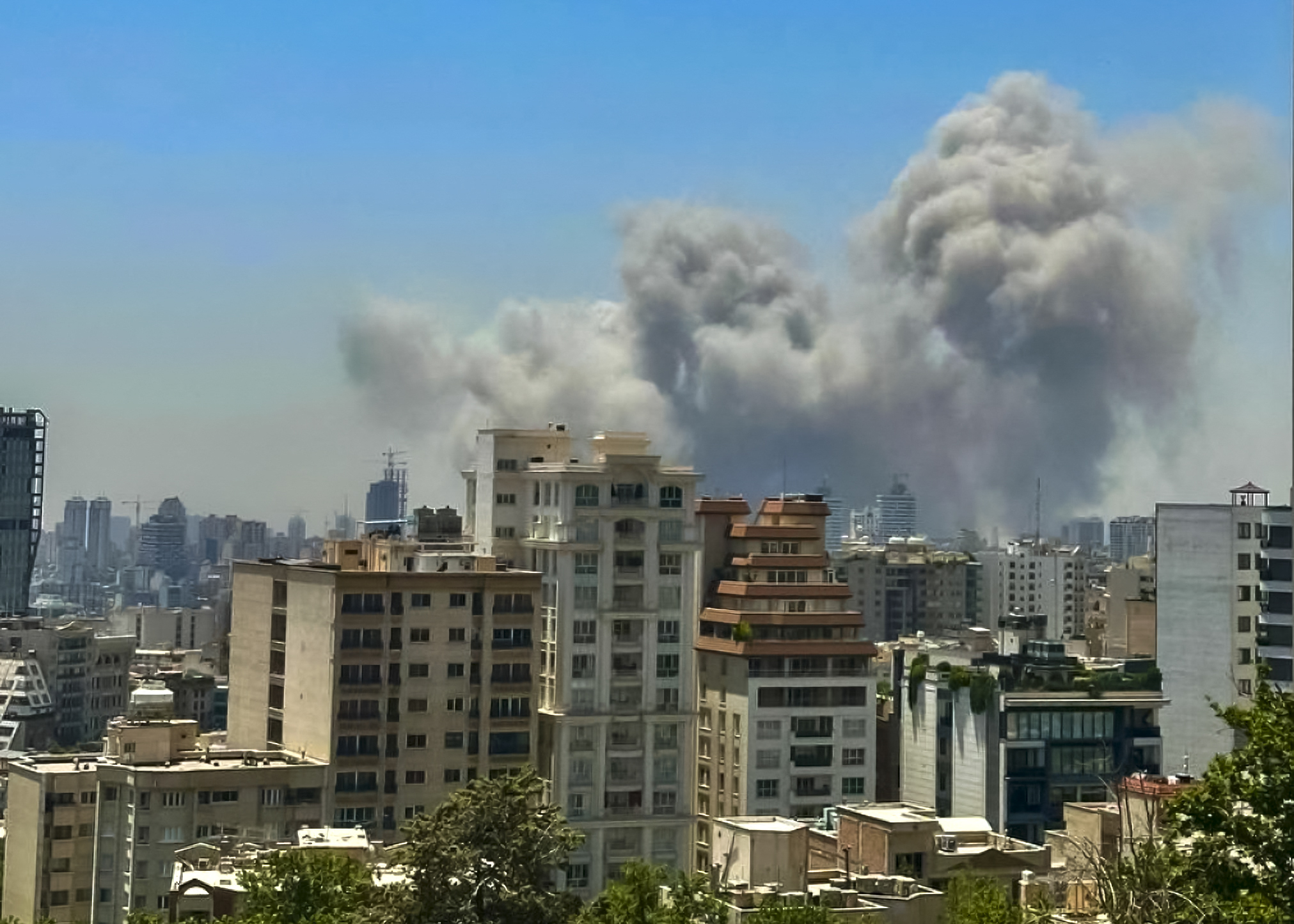Shahram Farsai, head of the Asia-Europe Department at Iran's Ministry of Foreign Affairs, summoned Ukrainian charge d'affaires Kirill Pozdnyakov on 30/6 to protest statements made by "some Ukrainian officials regarding Israel and the US attack on Iran". Farsai warned of consequences if Kyiv continued its hostile and provocative rhetoric towards Tehran.
"By supporting Israel's military aggression, the Ukrainian government has effectively ignored its international legal obligations to respect the principles and purposes of the United Nations Charter and the 4 Geneva Conventions", Farsai said.
Charge d'affaires Pozdnyakov said he would convey the Iranian Foreign Ministry's message to the Ukrainian government in the near future.
 |
Smoke rises as Israel launches an airstrike on Evin prison north of Tehran, Iran on 23/6. Photo: AFP |
Smoke rises as Israel launches an airstrike on Evin prison north of Tehran, Iran on 23/6. Photo: AFP
Farsai did not specify the Ukrainian officials' statements regarding Israel and the US airstrikes. Earlier, in response to the US airstrikes on Iranian nuclear facilities on 22/6, the Ukrainian Foreign Ministry said that "Iran's nuclear program must end" so that Tehran could never continue to threaten other countries in the Middle East or any other nation.
The Ukrainian Foreign Ministry said that Iran's hostility towards Israel and many other countries is one of the reasons "leading to the current situation". According to the agency, the attacks by Israel and the US sent a clear signal to Iran that it cannot continue its policy of destabilizing security in the Middle East.
Ukraine also said that eliminating Iran's nuclear program would make the Middle East and the world safer, while reiterating accusations that Iran is providing military support to Russia in the conflict in Ukraine, such as supplying technology and Shahed-type unmanned aerial vehicles (UAVs).
Iran admitted to transferring several Shahed UAVs to Russia, but before the start of the Russia-Ukraine conflict.
The Tehran-Tel Aviv conflict erupted on 13/6 when Israel launched a preemptive strike against Iran with Operation "Roaring Lion", killing several high-ranking commanders and nuclear scientists. Iran then retaliated with Operation "True Promise 3". The fighting left 935 dead in Iran and 28 dead in Israel.
Early on 22/6, the US intervened in the conflict, sending bombers to attack three Iranian nuclear facilities and then asking Tehran to come to the negotiating table. US President Donald Trump announced the next day that Iran and Israel had agreed to a comprehensive ceasefire. Iran and Israel agreed to a ceasefire on 24/6, both portraying themselves as the victors. Both sides also accused each other of violating the ceasefire, but the situation is generally stable.
Huyen Le (IRNA, TASS)












